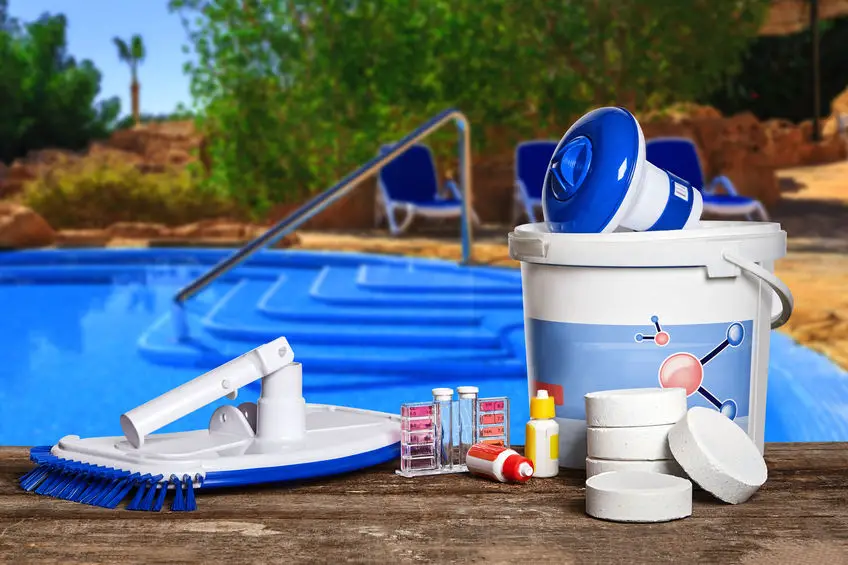When the swimming pool’s usage is on a different day today, the temperature conditions can be extreme stressing disinfection through the summer season. What is the difference between chlorine tablets and granular chlorine?
- Chlorine tablet-solid & dissolve slowly
- Granular chlorine is quick-dissolving
- Tablets used in dispensers
- Granular chlorine is broadcasted into H2O
- Tablets convenient for maintenance
- Granular chlorine for quick adjustments (shocking)
- Tablets more expensive per/pound
- Granular chlorine requires careful storage
For convenience, Chlorine Tablets are easy to use and work efficiently, to keep chlorine level in pool water but can’t give you the kind of controls that Granular Chlorine can give over the maintenance of you’re swimming pool. Here are some methods using Granular Chlorine that can keep your pool smooth sailing during the dog days of summer.
Introduction:
Welcome to the splashy showdown of the century, a chlorine clash fit for the ages! Diving into the crystal-clear world of pool maintenance, we size up two titans of the tank: the steadfast Chlorine Tablets and the gritty gladiators known as Chlorine Granules. Which one will float to the top as the champion of chlorination? Prepare to immerse yourself in a comprehensive comparison that promises to demystify these purifying powerhouses for your pristine pool paradise.
Chlorine Granules vs Tablets
Chlorine granules or granular chlorine is made up of Calcium hypochlorite, a dry crystallized compound of chlorine, that is commercially available in dry mixtures containing up to 80% calcium hypochlorite, though 65–75% is more common and lower concentration formulations are also available.
High strength Calcium Hypochlorite has been widely used as a disinfecting agent in swimming pools and municipal water treatment since 1928.
It is a convenient source of available chlorine, one of the most widely used chemicals for disinfecting swimming pool water and hot tubs. A concentrated source of chlorine in solid form Provides a residual level of free available chlorine (FAC) in the pool and spa water to kill disease-causing organisms. 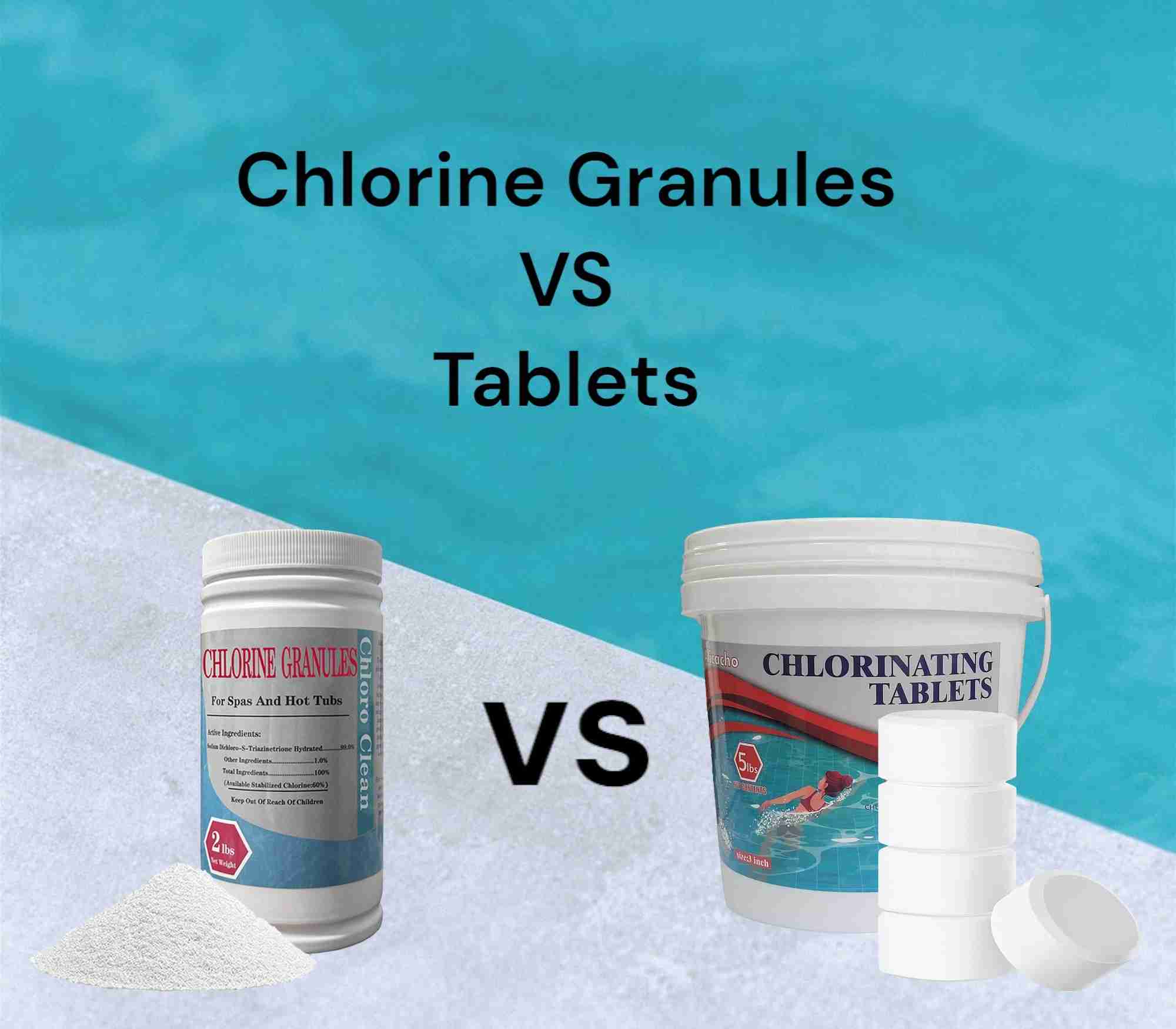
Granules of chlorine act as a sanitizer, algaecide, and/or shock product depending on the amount and application method. It destroys bacteria and contaminants in pool and spa water such as those found in sweat, urine, and windblown debris.
It does not contain a stabilizer (cyanuric acid), though it can be stabilized for extended disinfecting power when (cyanuric acid) is added to pool water usually separate from the chlorine granules.
Available in slow-dissolving tablet forms or more rapidly dissolving granular forms and requires the use of some specialized storing and handling. Calcium Hypochlorite can be used as a sanitizer every day. As long as the PH is between the range of 7.2 and 7.8. When used properly, hypochlorous acid will be the direct result which will kill algae, bacteria, and other microorganisms to control the sanitization of the swimming pool.
Besides being used as a sanitizer it can be used as an algicide and will oxidize contaminants and chloramines. If the free chlorine levels are where they should be, the water test will be at 1.0-4.0 ppm Hypochlorite will properly sanitize you’re pool and will kill off many populations of microorganisms in any conditions as they try to grow in your pool.
With Calcium, too little is not good but too much can cause some problems like cloudy water or scale formations in the water. When using Sodium Hypochlorite, there may be a rise in hardness and alkalinity that causes Calcium Carbonate. You will then need the water to be balanced.
Chlorine tablets and granular chlorine are both commonly used for sanitizing swimming pools and spas, but they have some key differences:
- Form:
- Chlorine tablets: These are solid, compressed tablets that dissolve slowly when placed in a chlorine feeder or floater.
- Granular chlorine: This form of chlorine comes in small granules or powder.
- Application:
- Chlorine tablets: They are often used in a floating dispenser or automatic chlorinator, where they dissolve gradually over time to maintain a consistent chlorine level in the water.
- Granular chlorine: Typically, granular chlorine is broadcast directly into the pool water, where it dissolves quickly to raise the chlorine level rapidly. It can also be used for spot-treating specific areas or for shock treatments.
- Convenience:
- Chlorine tablets: These are convenient for long-term maintenance because they dissolve slowly and require less frequent refilling of the dispenser.
- Granular chlorine: It’s convenient for quick adjustments to chlorine levels or for shock treatments, as it dissolves rapidly.
- Cost:
- Chlorine tablets: Generally, chlorine tablets may be more expensive on a per-pound basis compared to granular chlorine.
- Granular chlorine: It can often be less expensive upfront, but the cost-effectiveness may vary depending on the brand and concentration.
- Storage:
- Chlorine tablets: They are typically more stable and easier to store than granular chlorine. However, they should still be kept in a cool, dry place away from other chemicals.
- Granular chlorine: It can be more prone to moisture absorption and degradation if not stored properly. It should be stored in a cool, dry area and kept away from other chemicals.
- Handling:
- Chlorine tablets: These are generally easier to handle since they are in a solid form and don’t produce dust.
- Granular chlorine: It can produce dust when poured, so it’s important to wear appropriate protective gear, such as gloves and goggles when handling it.
Ultimately, the choice between chlorine tablets and granular chlorine depends on factors such as convenience, cost, ease of handling, and specific pool maintenance needs. Some pool owners may even use a combination of both types of chlorine depending on the situation.
Impact on Water Chemistry-Chlorine Granules vs Tablets
The choice between chlorine tablets and granular chlorine can impact other aspects of water chemistry in a pool. Tablets, with their slow dissolution rate, can contribute to stabilizer buildup over time, potentially leading to high cyanuric acid levels and affecting chlorine’s effectiveness. Granular chlorine, which dissolves rapidly, can cause pH fluctuations if not carefully monitored and balanced. Additionally, the inert ingredients in tablets may affect overall water chemistry differently than the composition of granular chlorine. Regular testing and adjustment of pH, alkalinity, and stabilizer levels are crucial regardless of the chlorine form used to maintain optimal water balance and bather comfort.
Impact on Swimmers-Chlorine Granules vs Tablets
The choice between granular and tablet chlorine can have implications for bathers using the pool. Granular chlorine, due to its rapid dissolving nature, can sometimes lead to temporary spikes in chlorine levels, potentially causing eye or skin irritation if not properly dispersed.
On the other hand, tablet chlorine, with its slow-release mechanism, tends to maintain more consistent chlorine levels, reducing the likelihood of sudden fluctuations that could impact bathers’ comfort. However, prolonged exposure to either form of chlorine at high concentrations can still pose health risks, underscoring the importance of regular monitoring and proper dosage. Overall, ensuring proper water circulation and filtration can help mitigate any adverse effects on bathers from either form of chlorine.
Chlorine, while essential for pool sanitation, can have an impact on bathers. Exposure to chlorine can cause skin and eye irritation, especially in poorly maintained pools with high chlorine levels. Prolonged exposure may exacerbate respiratory issues in sensitive individuals.
Proper water chemistry and filtration are crucial to minimizing these effects and ensuring a safe and enjoyable swimming experience. Bathers can also mitigate the impact by showering before and after swimming to remove chlorine from their skin and hair.
Here’s a list of potential impacts on bathers due to exposure to chlorine:
- Skin irritation
- Eye irritation
- Respiratory discomfort
- Exacerbation of existing respiratory conditions
- Sensitivity reactions in some individuals
Control of Bacteria-Chlorine Granules vs Tablets
In the control of bacteria, both chlorine granules and tablets play essential roles, albeit with some differences. Granular chlorine, with its rapid dissolution, can quickly raise chlorine levels in the water, effectively combating bacteria and other contaminants.
However, it requires careful handling and immediate dispersion to prevent localized spikes in chlorine concentration. On the other hand, chlorine tablets offer a slow-release mechanism, providing a more consistent and prolonged sanitizing effect. They are convenient for maintaining steady chlorine levels over time but may not offer the same rapid response as granular chlorine. Both forms are effective in controlling bacteria when used correctly, highlighting the importance of proper application and regular monitoring for optimal pool sanitation.
Here’s a comparison table outlining the differences between chlorine granules and tablets in controlling bacteria:
| Aspect | Chlorine Granules | Chlorine Tablets |
|---|---|---|
| Dissolution Rate | Rapid | Slow |
| Response Time | Quick | Gradual |
| Convenience | Requires immediate dispersion | Convenient for long-term maintenance |
| Application | Broadcast directly into water | Placed in dispensers or floaters |
| Sanitizing Effectiveness | Immediate, effective against bacteria | Effective over longer periods |
| Handling | Requires careful handling due to dust | Easy to handle, minimal dust |
| Cost | Can be less expensive upfront | May be more expensive per pound |
| Maintenance | Requires regular monitoring for pH balance | Helps maintain steady chlorine levels |
| Potential Issues | Risk of localized spikes in chlorine levels | May contribute to stabilizer buildup |
| Overall Effectiveness | Effective for quick adjustments | Suitable for consistent maintenance |
This table provides a concise overview of the differences between chlorine granules and tablets in controlling bacteria in pool sanitation.
How Do Chlorine Tablets Work in Maintaining Your Pool’s Cleanliness
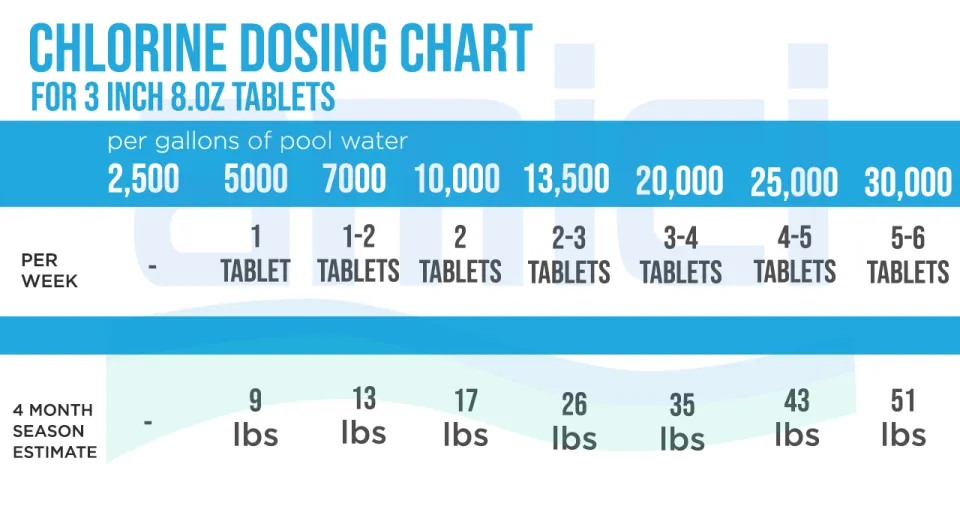 In swimming pools, chlorine tablets loaded in a floating dispenser are used not only to kill bacteria in the water but also to prevent the growth of algae and to maintain the proper pH level. The pH level is a rating on a scale that indicates how acidic or caustic a substance is. A safe pH level for a swimming pool is between 7.2 and 7.6. The same as Granular Chlorine
In swimming pools, chlorine tablets loaded in a floating dispenser are used not only to kill bacteria in the water but also to prevent the growth of algae and to maintain the proper pH level. The pH level is a rating on a scale that indicates how acidic or caustic a substance is. A safe pH level for a swimming pool is between 7.2 and 7.6. The same as Granular Chlorine
Calcium Hypochlorite can also work well in spas and will sanitize at levels of 2.0-5.0 ppm. When Calcium Hypochlorite is used to disinfect pool water then .08 ppm of calcium is added every time 1.0 ppm of Free Chorine is added to the pool.
Swimming pools usually need a measurement of 150 ppm-1000 ppm of calcium Hardness in the chemistry of the water. So testing needs to be done now and again to make sure levels aren’t climbing.
Chlorine tablets are solid pellets of a chemical compound containing chlorine that is used to disinfect and purify drinking water and water used in swimming pools. Chlorine has long been used to kill bacteria and microbes in water to make it safe. In its gaseous form, however, it is poisonous. Chlorine tablets in a floating dispenser became one of the most common and easiest methods for people to get the desired results safely.
Tablets are easy to apply to your swimming pool by just adding tablets to floater dispensers to the water. But your pool will need to be shocked most likely weekly or even more depending on the amount of use. You have no control over the residual or when or how the sanitizer is added.
Less control of a pool means more money. Adding Chemicals to your pool should be done on some type of schedule but then there are times because of usage or other conditions that make it impossible.
How to Add Chlorine Granules
Whenever you shock your pool or add chemicals empty the pool of rafts, tubes, covers, and floats and any organic material like leaves that are on the bottom of the pool or floating on top of the water that will absorb pool chlorine and pool chemicals.
You don’t want to waste any of it.
- Always add chlorine at night for the best disinfection rate and the absence of sunlight that burns Chlorine off.
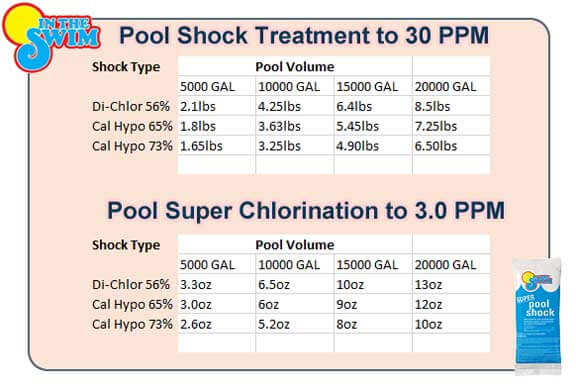
- Adjust the pH level of the pool if you need to before adding chlorine
- If you need to adjust the pH You may also need to wait because PH will take a while for the water’s chemistry to change. It’s a slow process. You don’t want to do it too fast or you’ll be ping-ponging from pH Low to pH High and back. For the complete bacteria to kill with any kind of chlorine your pH has to be right!
- Also, keep the pool filter running.
- Use a 5-gallon bucket you can buy at Home Depot and mix a couple of scoops of approximately 2 libs of Calcium Hypochlorite chlorine granules with a 2/3 bucket of pool water.
It’s not an exact science. Don’t kill it, just dilute the Granular Chlorine you need according to the Chart and walk the perimeter of the pool slowly pouring the contents of the bucket a foot or so off the wall so it will have some contact.
This is a good way to deliver chlorine fast and lethal. If you have a vinyl bottom on the pool, it will keep the Granules from laying on the bottom and damaging it.
The new granules of chlorine as Calcium Hypochlorite are stronger than they used to be with up to 70% Available Chlorine and 73% Active Ingredient which is close to what a good quality Pool Shock is. It has fast-acting dissolving crystals so you won’t have to mix and dissolve it, especially in a concrete or cement pool.
You can play with numbers and use the chart as a ballpark reference guide. Apply it all at one time by broadcasting the Granular around the parameter walls of the pool. If you dilute it then cover as much of the surface as possible. But try and add it fast and all together in one shot.
If your pool was 30,000 gallons and you were using Calcium Hypochlorite with 67% Active Ingredient to “Bump” the pool to 5ppm you would have to add approximately 2 lbs of Granular Chlorine to super-chlorinate the pool water. Add it Fast. So the Pool water gets the Chlorine all together in one shot. It is effective that way.
In a concrete or cement pool, you wouldn’t have to dilute and mix the chlorine granules that are fast dissolving. You can walk around the pool and broadcast the granules as you move around the perimeter walls. There is stronger “Hypo” granular chlorine available that is up to 70% available chlorine. If you experiment you can add or reduce the amount you need to “Bump” to double the Residual.
Use reliable test kits along with fresh reagents (check for expiration dates on the bottles) before Testing Pool Water.
What is the best Swimming Pool Return Jets Position?
At the Deepest End of the pool
turn the Return Jets (eyeballs) located on the pool walls angled down toward the bottom of the pool at a 45° angle
In the Shallow End of the pool
Turn return Jets clockwise to about 8 o’clock at a 45° angle so the return water to the pool is mixing in a circular motion. …………………………………………………………… Read more
Use “Bumping” to Increase Chlorine Levels and Control Bacteria
“Bumping” You’re Pool Or Super-Chlorinating
A bump to your chlorine level is just to boost its strength and get a handle on any growing algae or if you are expecting a large crowd to use the pool. You can buy fewer chemicals using chlorine granules during a super-chlorination or a “Bump” than if you were to Shock the pool with other super-chlorinating pool products.
The goal is to double the normal residual that you normally have in your pool. Bacteria and Algae tend to adjust to some chlorine residual by hiding out in cracks and crevices or underneath dead bacteria growth. With some Brushing a few times a week along with “Bumping” your residual will be enough to get a good kill and crystal-clean water.
You can save a lot of money by not shocking the pool with chlorine granules every week as the Pool Store wants you to do. It’s a waste of money. It will pay off this summer. Be the Master of your Swimming Pool by controlling it with good testing and procedures.
Can You Put Chlorine Granules in the Pump Basket
No, it is not recommended to put chlorine granules directly into the pump basket. Chlorine granules are designed to be dissolved in water before they are added to the pool. Adding them directly to the pump basket can lead to poor distribution and may damage the pump or other equipment due to concentrated chlorine in one area. Instead, follow the manufacturer’s instructions on how to add chlorine granules to your pool. Typically, this involves pre-dissolving the granules in a bucket of water and then pouring the solution into the pool.
You should never add chlorine granules or powder, or chlorine tablets like dichlor, trichlor, or liquid chlorine to a pool pump basket. Chlorine is a strong and often acidic chemical that will the seals and plastic components in your pool pump as well as other pool equipment like pool filters.
Chlorine in any form should never be added to your pool’s pump basket as it will damage the pump and reduce the life of other pool components. Many pool owners probably are unaware of the dangers of doing this, but we’ll do our best to explain why this should be avoided.
The Pools Pump Basket contains rubber seals and gaskets that will damage plastic baskets and even the pool heater. When chlorine sits in a pool basket, it will turn acidic and when the pool turns on will shoot directly into the filter This wouldn’t be good for a sand filter or a cartridge filter.
Do I need to Remove Phosphates from my Swimming Pool Water?
No, It is unlikely that you will be able to remove all phosphate entering your pool:
- Keep pool chemically balanced
- Properly sanitized
- Occasionally add algaecide & fresh H2O
- Daily skimming
- Scrubbing pool walls & floors
- Using a flocculant
- Then vacuuming
- This practice will keep phosphate levels at bay at no cost .…………………………………………………………………………. Read more
Conclusion:
In conclusion, the choice between chlorine tablets and granular chlorine for pool sanitation involves considering various factors, including convenience, cost, and impact on water chemistry. While tablets offer long-term maintenance convenience and granules provide rapid chlorine adjustment, both can affect bathers’ comfort and other water chemistry parameters if not properly managed. Regular monitoring, proper dosage, and maintenance of water balance are essential regardless of the chlorine form chosen. Ultimately, selecting the most suitable option depends on individual pool needs and preferences, ensuring a safe and enjoyable swimming experience for all.
*Using granular (granules) chlorine instead of Chlorine Tablets allows the “Bumping” technique to be a little more hands-on with the control of your pool. Just a little more work, but in the end, it will save you money and give you another weapon for becoming “the Master of your Pool”.
Have a Great Summer!
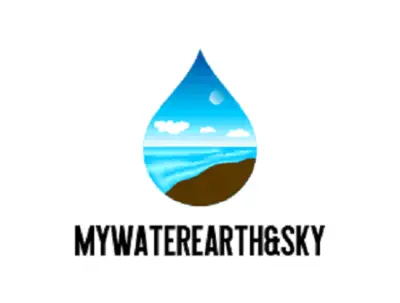
References:
FAQ’s:
What are the main differences between chlorine tablets and granules for pool maintenance? Chlorine tablets are slow-dissolving and provide a continuous release of chlorine, while granules dissolve quickly and offer a rapid increase in chlorine levels.
Which one is more convenient to use, tablets, or granules? Chlorine tablets are often considered more convenient for long-term maintenance, as they can be placed in a floating dispenser or a chlorinator for slow, consistent release. Granules may be used for quick adjustments.
Do chlorine tablets or granules affect pH levels differently? Chlorine tablets tend to have a stabilizing effect on pH, while chlorine granules can lower pH levels. Regular monitoring and adjustment of pH are essential regardless of the chlorine form used.
Are there any specific safety considerations for handling chlorine tablets or granules? Both forms of chlorine should be handled with care. Follow safety guidelines on the product packaging, and avoid direct contact with skin or eyes. Store them in a cool, dry place away from other chemicals.
